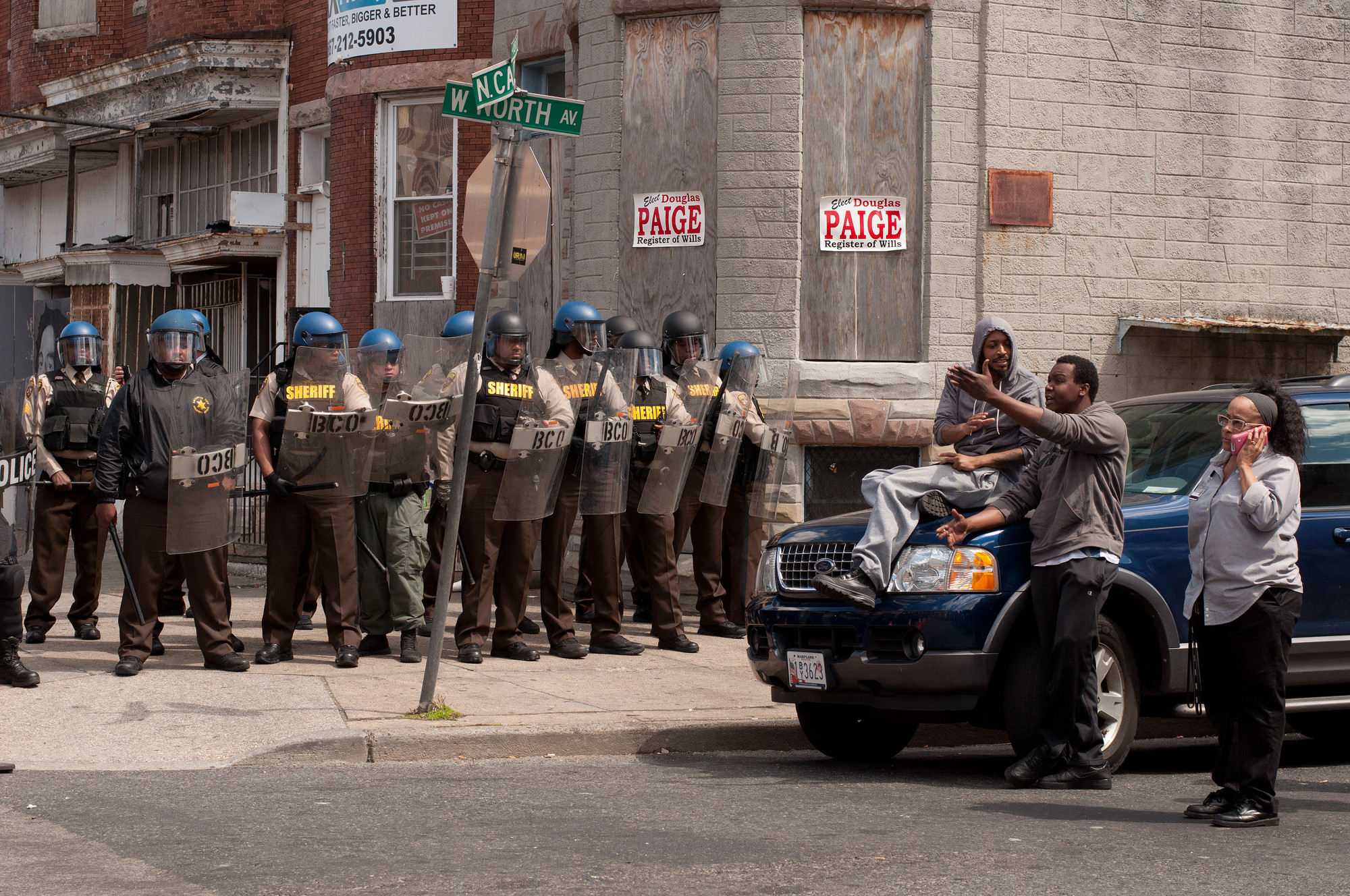
A different view of the Baltimore Uprising Bryan Vana / AFSC
We constantly advocate for more coverage of nonviolent protests and peace building.
But there's a good and bad way to do everything, as the excellent analysts at Colorlines and Media Matters for America pointed out last week in their coverage-of-the-coverage of last year's Baltimore Uprising. The Uprising, which occurred one year ago this past weekend, followed Freddie Gray's tragic death while in police custody. The coverage, as these analysts point out, followed a racist script of unruly, irrational Blackness.
Media Matters shows that the coverage of the Baltimore Uprising one year ago this weekend played into "a racist trope about Black rage that goes back centuries." The image of angry Black protestors violently disrupting 'the peace' dates back to at least the time of slave revolts. Journalists double down on this narrative when they ask Black activists and community leaders to account for protests using terms like "thugs" or "idiots." CNN's Carol Costello did exactly this in her interview with AFSC's Baltimore Peace by Piece leader Faraji Muhammad last April:
Moreover, this framing overwrites questions about structural racism, poverty, and police brutality, leaving these key causes of the Baltimore Uprising out of public discourse.
We are always in favor of more coverage of protests, peace building, and so forth, but it should never come at the expense of protestors' (or viewers'!) humanity. Repeating these narratives only makes them harder to change - something that we'll be talking more about once our very first brand new 'change the narrative' study is ready for sharing. Stay tuned.
What did you think of the coverage of last years' Uprising, or this weekend's coverage of the anniversary? Tell us about it in the comments.